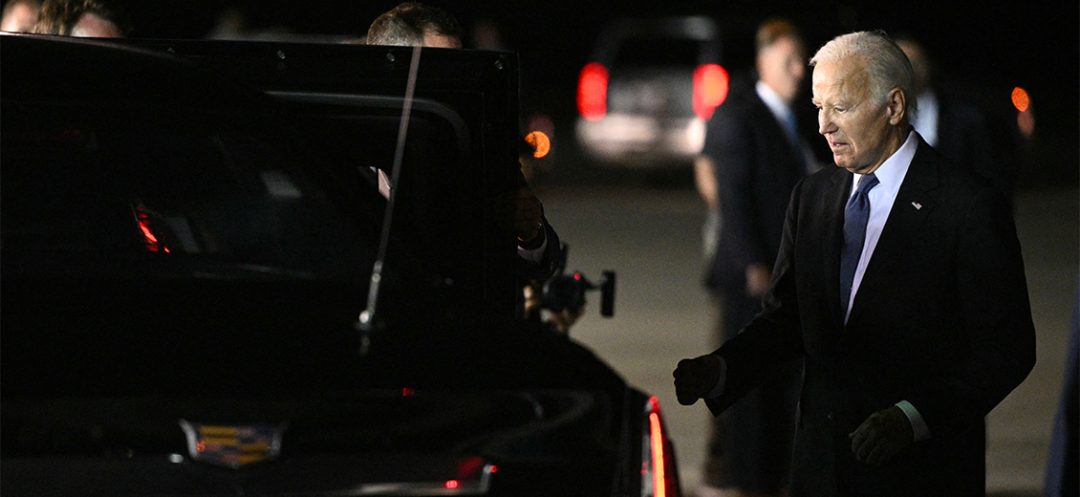Listen to the article
Following the first face-off of the presidential campaign, where US President Joe Biden squared off against his predecessor Donald Trump, concerns have arisen about the Democratic president’s performance in the White House and his ability to continue governing the country.
These concerns have echoed in both American and international media, sparking comments about the future of the presidential race. Could Joe Biden potentially withdraw from the presidential race? More critically, is it really an option?
Hosted by the American channel CNN on Thursday, the 90-minute debate appeared to lean in favor of the former Republican president, who had recently been convicted in a criminal trial. After the televised confrontation, Democrats claimed that Donald Trump had gained momentum in the race, slated to conclude on November 5, by facing an opponent with a hoarse voice, occasional disruptions, and “suffering from a cold.”
This has prompted speculation that Democrats might be contemplating replacing their candidate. Is such an approach possible? Who might be the potential candidates if Biden were to withdraw or be replaced?
“This debate has shaken Washington to its core. While first debates are usually not decisive, this one certainly will be due to Biden’s poor performance,” comments Marie-Christine Bonzom, a political scientist, journalist (Voice of America, BBC, and Devoir), and specialist of the United States.
Based in Washington for nearly thirty years, Bonzom was one of the few analysts who predicted Donald Trump’s victory in 2016. “The fragility of the Democratic candidate confirms what the majority of Americans have long feared, namely that he is not only incapable of securing a second term, but also of completing the current one,” asserts the woman who has covered no less than seven campaigns and presidential elections in the United States.
However, if the Biden camp continues to cling to his candidacy, the repercussions would be seismic. It would affect “not only the current White House incumbent and the future of his campaign, but also the image of the Democratic Party, which has denied for months, particularly since last September, any fundamental issues concerning the president’s mental and physical alertness,” noted Bonzom.
To replace the Democratic president as a candidate for a second term, a combination of three key elements is required: his voluntary (or forced) withdrawal, a decision on timing, and logistics to designate a new candidate.
Withdrawal and Timing
If internal party regulations make it nearly impossible to replace a candidate without their consent, Democrats will need to focus on persuading the current president to withdraw from the race. However, this action is not without consequences. It is crucial to note that neither Donald Trump nor Joe Biden are yet the official candidates of their respective parties. At present, they are presumptive candidates who have yet to be officially nominated during the national conventions scheduled for the Democrats (August 19 to 22).
To proceed with President Biden’s replacement, several scenarios are on the table. Jean Sébastien Guillaume, founder of Celtic Intelligence, explains, “If Biden decides to withdraw before the Democrats’ national convention scheduled between August 19 and 22, the Democratic National Committee (DNC) would likely have to convene a special meeting in July to select a new candidate.” This is usually achieved, according to Guillaume, through a majority vote among DNC members. However, he notes that “this scenario is very complex, given the party’s structure and the primary election calendar.”
This suggests that by the time such a decision is required, the deadlines will be tight for the new candidate to garner enough delegates during the primaries, which wrap up by the end of June.
If the Biden camp continues to support the president’s candidacy, “influential figures within the Democratic camp may exert increased pressure to approach the White House incumbent and request his withdrawal,” highlights Bonzom. If they fail to persuade him to take such action, these prominent figures — referred to as superdelegates — and other delegates, known as ordinary delegates, “could then plan an event to honor Biden and his achievements, marking the beginning of the transition process to a new candidate,” asserts the political scientist.
The third scenario, deemed most likely by experts, envisions the White House incumbent withdrawing during the Democratic National Convention in August. Guillaume elaborates, “This process could entail intense negotiations and maneuvers among the potential candidates” (refer to the list at the bottom of the article, editor’s note).
“To this end, there is a mechanism in place to nominate another candidate, a mechanism under which superdelegates, unlike ordinary delegates who are bound by primary election results, have the flexibility to initiate a new nomination,” notes Bonzom.
A fourth scenario, seen as highly improbable, involves President Biden being deemed unfit or deciding to withdraw from the race after the convention, which could complicate the situation for the Democrats. “The DNC would need to convene a special meeting to select a replacement, navigating legal considerations in each state regarding ballot access and deadlines,” points out Guillaume.
Who Might Replace Biden?
There are currently nine potential Democratic candidates under consideration, with a strong focus on the top four, according to experts:
- Kamala Harris: As the current Vice President, Harris could succeed Biden, although her approval ratings and performance in the 2020 primaries have raised concerns among some party members.
- Gavin Newsom: The Governor of California has positioned himself as a tough candidate by bolstering his national profile and engaging in high-profile political battles.
- Gretchen Whitmer: The Governor of Michigan has gained national acclaim for her leadership and is widely considered a strong candidate within the party.
- J.B. Pritzker: The Governor of Illinois, known for his progressive policies and substantial personal wealth, which could be advantageous in a national campaign.
- Phil Murphy: The Governor of New Jersey has also been highlighted as a potential candidate due to his leadership and political accomplishments.
- Pete Buttigieg: The Secretary of Transportation and former Mayor of South Bend, Indiana, who ran a robust campaign in the 2020 primaries and still maintains significant national base.
- Amy Klobuchar: The Senator from Minnesota, known for her moderate stance and strong performance in the 2020 primaries.
- Cory Booker: The Senator from New Jersey, who has also sustained an active national profile and maintained a dedicated base of supporters.
- Elizabeth Warren: The Senator from Massachusetts, with a solid grassroots network and substantial backing among progressive Democrats.





